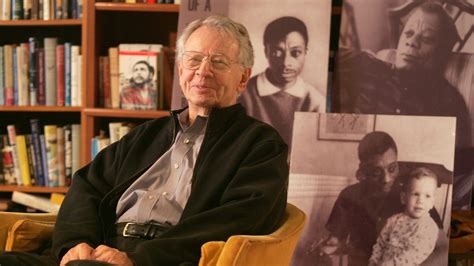A Quote by Robert Stone
You should let dialogue get as nearly out of control as you can. Characters should say what they say to each other instead of what they mean to say. The worst purpose of dialogue is to elicit information: "You know why we're out on this space station, Carruthers - to save the universe!"
Related Quotes
What I like and find liberating in dialogue comedy is that the characters, and what they say, are not me. These are fleeting thoughts and observations and not presented as truths but as something that illuminates the character and the dynamic between the characters. This kind of dialogue is thesis and antithesis - and we never get to a synthesis.
You know, this dialogue is only helpful when we come, both of us, to a point where we realize that no dialogue is possible, that no dialogue is necessary. When I say understanding or seeing, they mean something different to me. Understanding is a state of being where the question isn't there any more. There is nothing there that says, "Now I understand!" That's the basic difficulty between us. By understanding what I am saying, you are not going to get anywhere.
A chef is a chef, a cook is a cook; a lorry driver is a lorry driver and a designer is a designer. I've never heard anyone say that Philippe Starck is a chef. The important thing is dialogue. If I said to Norman Foster that he was a chef he'd say "No", but he might have a dialogue with chefs. People have said to me for many years that I'm not a chef and that I'm an artist instead, but I always say, "No, I'm a chef." I just have dialogues with designers.
When I go to the cinema, I want to have a cinematic experience. Some people ignore the sound and you end up seeing something you might see on television and it doesn't explore the form. Sound is the other picture. When you show people a rough cut without the sound mix they are often really surprised. Sound creates a completely new world. With dialogue, people say a lot of things they don't mean. I like dialogue when it's used in a way when the body language says the complete opposite. But I love great dialogue I think expositional dialogue is quite crass and not like real life.
Rather than make claims of final theories, perhaps we should focus on our ever-continuing dialogue with the universe. It is the dialogue that matters most, not its imagined end. It is the sacred act of inquiry wherein we gently trace the experienced outlines of an ever-greater whole. It is the dialogue that lets the brilliance of the diamond’s infinite facets shine clearly. It is the dialogue that instills within us a power and capacity that is, and always has been, saturated with meaning.
When people say "Let it go," what they really mean is "Get over it," and that's not a helpful thing to say. It's not a matter of letting go - you would if you could. Instead of "Let it go," we should probably say "Let it be"; this recognizes that the mind won't let go and the problem may not go away, and it allows you to form a healthier relationship with what's bothering you.
It's something that's difficult to explain but I think all writers work this way to some extent, whether we're aware of it or not. For me, writing has little to do with thinking. I don't want to control the narrative. I listen to the rhythm of the words and dialogue and try to give the characters the space in which to say and do what they want without intervening too much.






































